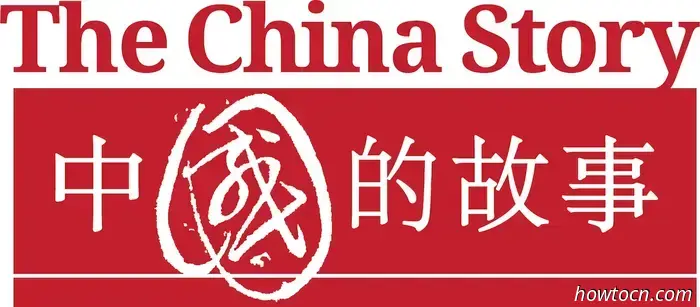-Science-Fiction-The-China-Story.png)
In April 2024, Taiwanese drag queen Nymphia Wind became the first winner of RuPaul's Drag Race from East Asia. Her videos in a stunning golden galactic outfit went viral, bringing Taiwan into the international media spotlight and positioning her as a queer ambassador representing Taiwanese authenticity to the world, or as she described it, like a wai jiao guan 外焦官 – a clever wordplay on 'ambassador' 外交官. Upon returning home, Nymphia was invited to perform for Taiwan’s President Tsai Ing-wen, donning a banana blossom costume that symbolizes her Asian roots, while dancing in front of the statue of Sun Yat-sen, accompanied by a medley of songs, including classics from Taiwanese divas and her favorite Lady Gaga track, ‘Marry the Night.’
During her performance, Nymphia exhibited the same exuberance seen in Taiwan's sci-fi writers since the 1990s. This time, however, the global recognition of Taiwan’s queer imagination extended beyond literature and showcased itself on television, with both Nymphia and earlier Taiwanese queer science fiction authors sharing a unified aspiration: envisioning an alternate future.
Dreaming of an alternate future
In 1995, Taiwanese gothic sci-fi author Hong Ling 洪凌 reflected on the meaning of existence in cyberspace in the technical journal Wanglu Tongxun 網路通訊, articulating a core concept in contemporary literary sci-fi:
"I just returned from a place where comprehension isn’t constrained by three-dimensional physics. The term ‘returned’ contradicts current physics since I haven’t moved. In truth, I’ve remained still in my little attic, typing on my keyboard perched on my knees, glued to an 87 cm monitor... Somehow, the me from moments ago is not the same as the me who is now furiously striking the keys; they occupy two distinct places."
Amid growing concerns regarding the internet's pervasive spread in the 1990s and its implications for freedom and civilization, Hong Ling's contribution titled ‘A Fatal and Magnificent Surreal Realm’ 致命華美的超現實境域 offered a hopeful vision for the future. This outlook has deeply influenced queer sci-fi in Taiwan: one that prioritizes different modes of existence.
Sci-fi remains an underappreciated genre in Taiwan. A visit to a bookstore on the island, whether in the 1990s during the genre's emergence or today, reveals a lack of dedicated shelves for such texts. Taiwanese sci-fi writers of the 1990s employed diverse elements, complicating the task of strictly categorizing Taiwanese sci-fi without encroaching upon fantasy or general literature genres.
Scholars argue that a defining aspect of sci-fi is the notion of cyberspace, which presents an avenue to fulfill the fantasy of transcending the "prison of the body" in the future. However, Taiwanese queer sci-fi authors like Hong Ling approached future uncertainties comprehensively. They perceived technology not merely as an escape route from present-day issues but as a central component of their ambitions for survival outside normative constructs. Their narratives depicted cyberspace and technology not as detachment from corporeal concerns but as a means to navigate between our vulnerable realities and existential threats, creating avenues for queer futures.
The body occupies a central role in Taiwanese sci-fi of the 1990s, infused with desire and longing, reflected in Hong Ling’s collection of lesbian vampire stories, Heretic Vampire Biographies 異端吸血鬼列傳, or in her narrative ‘Fever’ 發燒, featuring lesbian vampires and werewolves in post-apocalyptic environments shaped by nuclear and environmental disasters.
Through technology, Taiwanese queer sci-fi writers conceptualized self-expression unbound by sexual biases while embracing uncertainties of the future. As Hong Ling penned, "Let’s meet each other online! Even if that means encountering deeply alienated identities and becoming entangled in relationships unlike any we currently know." Though this call for an anarchic future may seem radical, it positions technology as the avenue to realize the unknown, highlighting a necessity to transform the corrupted present. Technology served not only as an abstract muse for queer storytelling but also as a concrete means to forge an unpredictable yet yearned-for future, with queer sci-fi authors fueled by it.
In 1995, when Microsoft Word and the internet were still novelties, Chi Ta-wei 紀大偉 introduced The Membranes 膜, often recognized as the first modern Sinophone queer sci-fi novel and seemingly the first to feature a trans protagonist. This narrative unfolds in a world where humanity has escaped the Earth's surface to take refuge on the ocean floor. Written in merely one month, two years after Chi learned to use Microsoft Word, the novel has been translated into multiple European languages and adapted for the stage—clearly illustrating that technology was not just a fictional backdrop but an essential tool for crafting the future.
In a 2021

I was one of the organizers of the 2014 pro-democracy Umbrella Movement and received a sixteen-month prison sentence for encouraging people to participate in a seventy-nine-day occupation of major roads in Hong Kong. Life in prison was challenging. The food was poor, and the summer heat was unbearable while winters were excessively cold. There were numerous regulations governing prison life. Sharing food, books, or even keeping an orange overnight could lead to punishment through solitary confinement, where one would have no access to books, snacks, radio, or television. Inmates were stripped not only of their freedom but also of their dignity, frequently scolded by guards and monitored naked by surveillance cameras.

The lives of Africans in Guangzhou have been adversely impacted by China's stringent visa and residency regulations, as well as police oversight. This includes direct visa checks that could result in deportation, and indirect monitoring in shopping malls where Africans conduct business, the hotels they occupy, and the community committees in their residential areas. The majority of African importers possess thirty-day tourist visas or visitor visas that last one to two months, which are inadequate for placing orders, waiting for factory deliveries, and managing shipping processes. Only a small percentage have managed to secure longer residency permits (up to one year) to operate cargo businesses or stores in China. Some individuals are residing there illegally, either on fraudulent visas (sometimes issued by deceitful visa agencies) or by overstaying due to a lack of funds to purchase a return ticket.

As US TikTok users seek solace in an alternative Chinese app named Xiaohongshu, we explore the app's background, its distinctive features, and its growing global impact.

Chinese digital nationalism is experiencing a notable rise. A significant indication of this is the increasing public interest in cultural heritage across the nation, particularly among younger generations. They showcase their passion through the enthusiastic purchase of heritage items, such as traditional Hanfu 汉服 fashion, which includes the classic skirt known as mamianqun 马面裙 and the cheongsam, a widely recognized women's dress style from the early 20th century, also referred to as qipao. As reported by Alibaba’s digital marketing platform, in January 2024, sales of mamianqun rose by nearly 25 percent, while cheongsam sales increased by over 31 percent.

Thank you for engaging with the China Story. The moment has arrived for us to part ways. The website will cease updates starting February 2025.

China boasts a significant level of linguistic diversity, with 281 languages belonging to nine different language families. However, the distribution of speakers among these languages is highly uneven. Of its total population exceeding 1.4 billion, 91.11 percent are Han Chinese who communicate in Putonghua and/or other Sinitic languages; the remaining 8.89 percent comprises non-Han Chinese or minority ethnic groups who speak an additional 200 languages.
In April 2024, Nymphia Wind, a drag queen from Taiwan, made history as the first East Asian winner of RuPaul's Drag Race. Clips of her in a shimmering golden outfit gained widespread attention online, bringing Taiwan into the global media spotlight and establishing her as a kind of queer representative for Taiwanese authenticity to the world. As she humorously noted, this role can be compared to a wai jiao guan 外焦官 – ‘external banana official’, a play on words with the term for 'ambassador' 外交官.